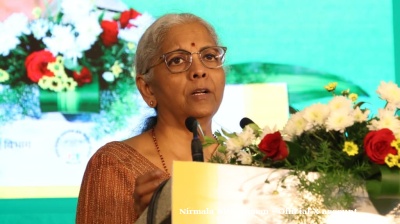Mexico made history on June 2 by electing its first female president, breaking with a deeply entrenched machista culture that saw former president Vicente Fox labelling women as "two-legged washing machines" only twenty years ago. Claudia Sheinbaum, a 61-year-old climate scientist and former Mexico City mayor, triumphed at the polls taking almost 60% of the vote with her Morena party projected to gain an overwhelming majority in Congress.
Speculation is rife over the policies she will advance, firstly in terms of security and the economy – the two main concerns gripping the country. During the campaign, Sheinbaum pledged continuity with her mentor, incumbent President Andrés Manuel López Obrador – the charismatic leader, also known by his acronym AMLO. It was AMLO who founded Morena on a leftist platform after leaving the more centrist PRD Social Democratic Party in 2012.
However, many point out stark differences in attitude between the reserved US-educated academic and the outspoken populist leader who came to power in 2018, presiding over five turbulent years. These years witnessed the COVID-19 pandemic, a spike in crime caused by rising cartel activity, an unprecedented migrant crisis and economic opportunities stemming from the US’ drive to “nearshoring” in a desperate bid to decouple from China.
All in all, the results of AMLO’s tenure offer a mixed bag; under his watch, Mexico managed to navigate the pandemic relatively well without resorting to extremely coercive measures. The country also convinced the US and Canada to sign a free trade deal in 2019 (USMCA), enticing manufacturing industries to open up shop in the country. This deal, crucially up for review in 2026, allowed Mexico to overtake China as Washington’s main trading partner and prompted US foreign direct investment (FDI) to skyrocket to $130.3bn in 2022, as per US Trade Representative figures.
AMLO also massively overhauled the country’s social welfare programme, by doubling the minimum wage and boosting infrastructure projects across the country, with many of these still in the making and awaiting financing.
However, his handling of the drug-fuelled cartel violence – a scourge long plaguing the country – leaves something to be desired.
Upon taking office, he declared that “fighting the drug cartels is a foreign concept,” one imposed on Mexico by the United States. His mantra became “hugs not bullets,” referring to the idea of addressing the root causes of crime rather than resorting to a punitive approach. Over the years, AMLO essentially handed over state security to the army and reduced the role of municipal and national police, which were previously more effective at tackling cartel violence in local communities.
This policy – which raised concerns over accountability and potential human rights violations – arguably failed, as official figures reveal over 30,000 crime-related homicides per year, and cartels thrive after shifting their focus from cocaine trafficking to the more lucrative production of the synthetic opioid fentanyl. This extremely potent drug, produced with chemical components sourced from China, caused 75,000 deaths in the US last year and became a major source of friction with both the Trump and Biden administrations. Meanwhile, despite increasing pressure from Washington, migrants hailing from South America continue to amass on the US-Mexico border, with the US Border Patrol counting 250,000 crossings in December 2023 alone.
All of this makes one thing clear: Sheinbaum’s first defining moves will hinge on the result of the US election in November, barely a month after she is expected to take office.
A possible win by an embittered Donald Trump could drive Mexico further away from the Western orbit, likely pushing it towards China, which would be very keen to exploit the country’s favourable agreements with the US to skirt trade tariffs by establishing its own export and manufacturing facilities.
A second Biden term would certainly be more reassuring, but may nonetheless give rise to tensions, particularly on the thorny issue of migration – as the latest sweeping asylum ban imposed on the US-Mexico border ominously seems to predict. Sheinbaum’s foreign policy also poses significant question marks, regardless of the US election outcome: will she continue AMLO’s grumbling but not too overtly antagonistic approach to Washington, leverage her even temper to improve those relations, or rather gravitate towards the “Global South” and BRICS fold spearheaded by Russia and China? As she thanked literally every world leader – from Vladimir Putin to Joe Biden and various European presidents, including Ukraine's Zelensky on her X account following the election, it is hard to tell at the moment.
The newly-elected president will also have to tread carefully when dealing with energy issues, as it is crucial to keep costs at bay to preserve Mexico’s attractiveness to foreign investors, already tarnished by AMLO’s minimum wage raise.
In line with her environmental credentials, she has committed to a $13.6bn investment in wind and solar energy projects. However, building renewable energy plants takes time, which the country does not have as it faces a significant budget deficit left by the incumbent president and hovering at around 6% of the country’s GDP.
Additionally, the heavily indebted national oil company Pemex – hardly a source of pride in terms of sustainability – remains a vital revenue source and holds symbolic value for many Mexicans. It simply cannot be left to collapse.
Analysts predict Sheinbaum will soon be forced to raise taxes to continue the ambitious social programmes launched by her predecessor, and this is unlikely to help boost her popularity.
One may well argue that AMLO – who has vowed to retire to rural life on his farm – gifted his pupil with an unenviable legacy by leaving office while still enjoying huge popular approval rates and passing over the baton – and the buck – at such a critical time. Apart from that, few sincerely believe that a man with such a huge ego would ever step aside for good.
Will Sheinbaum manage to break free of the cumbersome shadow of her mentor, at the risk of losing support? Will AMLO continue to back her, or could he turn on her at the first quarrel? This, like many other major developments across the world, will largely depend on what will happen up north in November.
News

Thousands rally in Tirana demanding justice for former KLA leaders on trial in The Hague
Albanian PM Edi Rama called the protest, urging all Albanians to unite behind what he described as a “national cause” — defending the honour and legacy of Kosovo’s wartime leaders.

Putin's meeting with Trump in Budapest is a slap in the face for the EU
As preparations get underway for a highly anticipated summit between Russian President Vladimir Putin and former US President Donald Trump in Budapest, attention is turning to an unusual but politically sensitive detail: how will Putin get there?

Zelenskiy leaves Washington empty handed, Trump and Putin head to Budapest to talk business
Ukrainian President Volodymyr Zelenskiy went into a White House meeting with US President Donald Trump on October 17 hoping for a big arms deal. He came out of the meeting empty handed.

Taiwan’s KMT elects new leader
Cheng Li-wun, the only female contender among six candidates, defeated former Taipei mayor Hau Lung‑bin by a wide margin, winning over 50% of the ballot in the leadership race for Taiwan’s opposition Kuomintang on October 18.

_Cropped_0.jpg)

